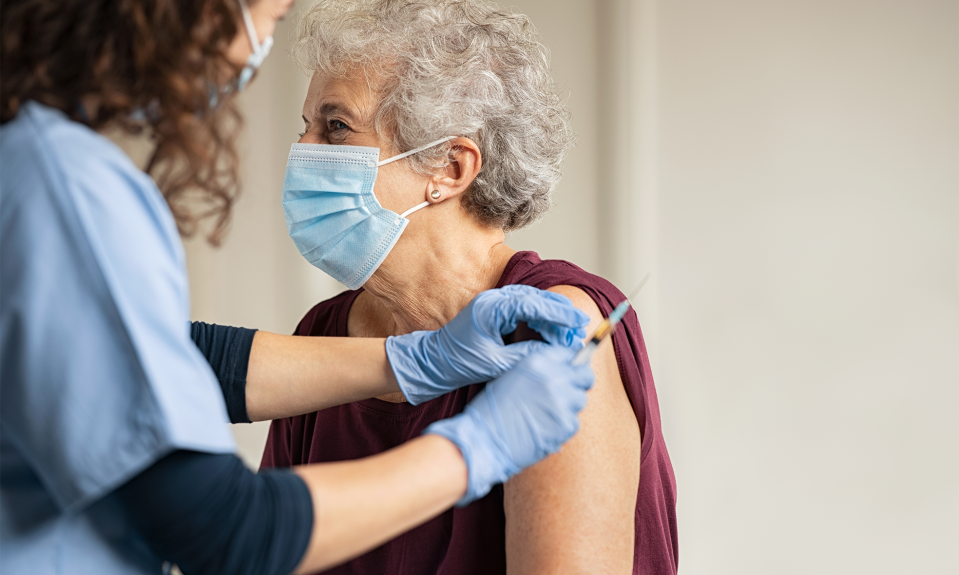COVID-19 is a puzzling virus. While some people escape with few to no symptoms, others develop a life-threatening infection. Those who survive a severe COVID-19 infection often report persistent complications. The most common lasting complications include shortness of breath, chronic cough, chest tightness, cognitive dysfunction and fatigue. As seen in the list above, the pulmonary system appears to be especially targeted by this virus. In fact, research shows that up to a third of patients hospitalized with COVID-19 experience residual lung damage.
But is that the end of the story? Does a COVID-19 survivor live with lung damage for the rest of their life? Thankfully, there is new data that offers hope for breathing better after COVID-19.
Recently, The Lancet Respiratory Medicine published some of the first data on long-term pulmonary function. They found that improvement did not stop after a few months, but continued for at least a year. They saw this in the patients’ increased ability to exercise and transfer oxygen, and in clearer CT scans. It’s true that some patients still had residual effects one year after the infection, but the vast majority continued to clear with time and treatment.
If you want to help your lungs recover after COVID-19, there are some things you can do.
Speak with your physician about a consultation with a pulmonologist or respiratory therapist.
These professionals specialize in lung health. They can perform a detailed assessment of your current lung function and offer customized treatment ideas to help in your healing.
Take deep, slow breaths.
Most of us only use a small part of our lung volume when we breathe. We spend most of our time using small, shallow breaths. Yet, with some conscious effort, we can improve our breathing. Set a reminder or download an app that prompts you to take slow, deep breaths several times a day. While you inhale, visualize all the parts of your lungs inflated with air. Hold that breath for a few seconds and then slowly exhale.
If prescribed, use an incentive spirometer as directed.
An incentive spirometer is a medical device that helps increase lung volume. They often prescribe it after surgery or pneumonia. It is a great visual tool to mark your improvement and progress towards your pulmonary goals.
If approved by your physician, add some mild exercise to your workout.
Exercise, especially cardio, causes heavier breathing. This will help expand your lung capacity, and you get the added bonus of increased strength and wellness. Ask your physician what types and levels of exercise are right for you.
Prioritize good nutrition.
Don’t forget to eat well. Recovery from illness takes increased calories, protein and nutrients. Follow your physician’s or dietitian’s recommendation for a healthy diet that will help on your road to wellness.
Recovering from COVID-19 might seem daunting, but don’t let it overwhelm you. Just take it one deep, sustained breath at a time.
References
- Improving Lung Capacity Pre- and Post-COVID-19, Cedars-Sinai Newsroom, Los Angeles, June 26, 2020. Accessed May 12, 2021. Los Angeles,Jun26,2020Improving Lung Capacity Pre- and Post-COVID-19 https%3A%2F%2Fwww.cedars-sinai.org%2Fnewsroom%2Fimproving-lung-capacity-pre–and-post-covid-19%2F
- Priya Venkatesan. NICE guideline on long COVID, The Lancet Respiratory Medicine (2021). ISSN 2213-2600, https://doi.org/10.1016/S2213-2600(21)00031-X.
- Xiaojun Wu et al. 3-month, 6-month, 9-month, and 12-month respiratory outcomes in patients following COVID-19-related hospitalization: a prospective study, The Lancet Respiratory Medicine (2021). DOI: 10.1016/S2213-2600(21)00174-0
The content of this site is for informational purposes only and should not be taken as professional medical advice. Always seek the advice of your physician or other qualified healthcare provider with any questions you may have regarding any medical conditions or treatments.


